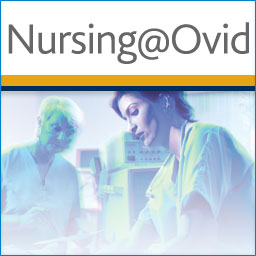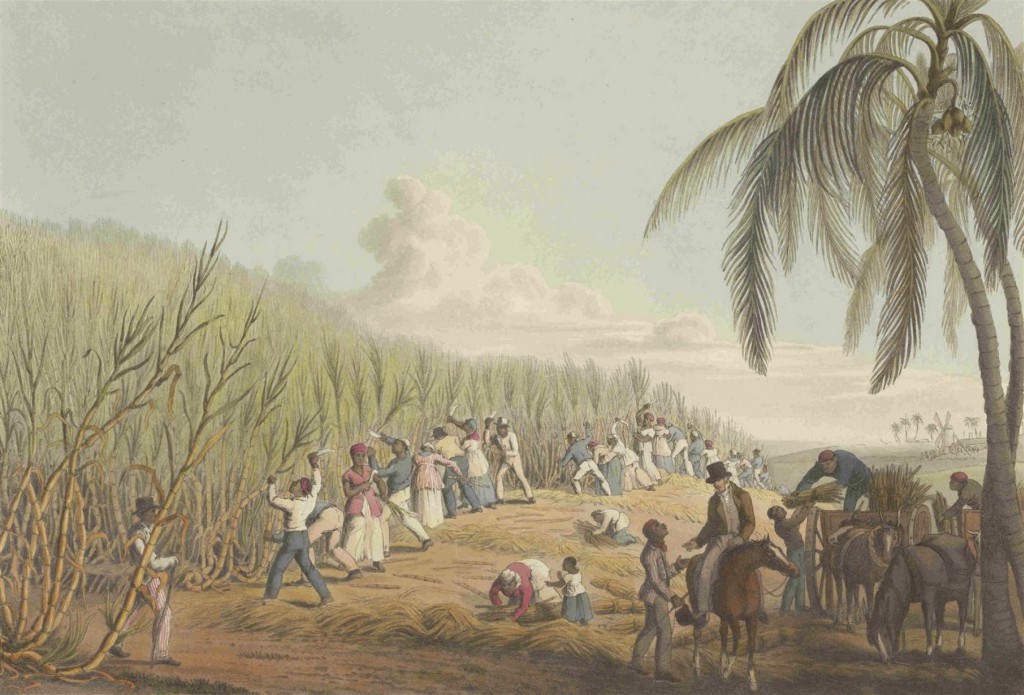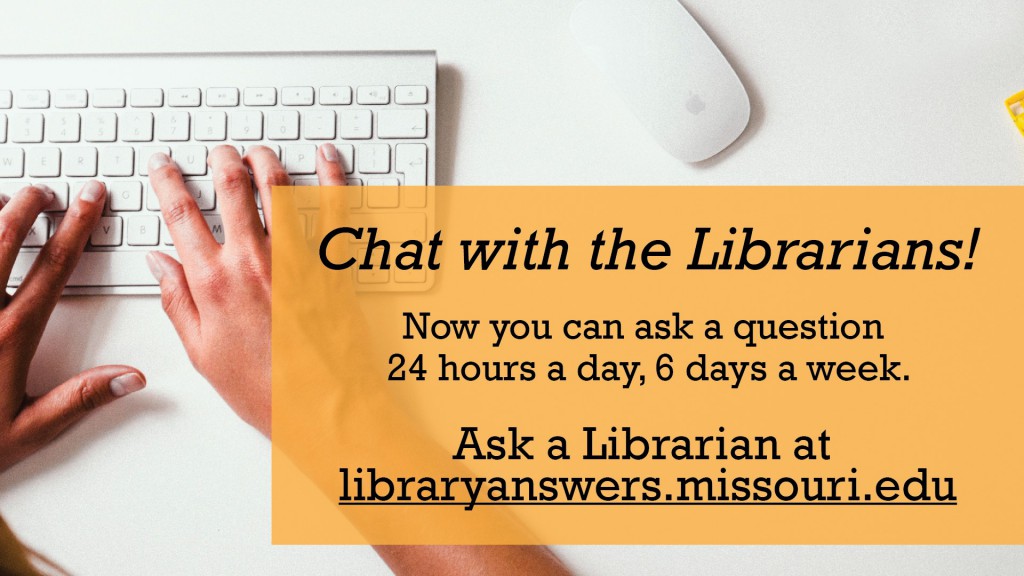Hocker discusses how the NBC 5 / KXAS archives became part of the University of North Texas' Portal to Texas History.
Read more at the Reynolds Journalism Institute blog: Keynote: Brian Hocker, KXAS-TV, NBCUniversal
Your source for what's new at Mizzou Libraries

Hocker discusses how the NBC 5 / KXAS archives became part of the University of North Texas' Portal to Texas History.
Read more at the Reynolds Journalism Institute blog: Keynote: Brian Hocker, KXAS-TV, NBCUniversal

Check out the guide for Dr. Amos-Landgraf's VPB 5579 course on Veterinary Genomics: https://libraryguides.missouri.edu/vpb5579

Check out the free database and journal trials that Ovid is offering in May for nurses! The featured resources this month are:
Access for these resources lasts until the end of May, so check them out while you can.
Access here: http://www.ovid.com/site/index.jsp
Tips and Tricks:
Each resource has to be registered for separately.
Cross searching databases is not allowed with the trials.

This week’s open access blog post features Dr. Akwi Asombang. Dr. Asombang is an Assistant Professor of Clinical Medicine in the Department of Gastroenterology and Hepatology at the School of Medicine. Her research and clinical interests include gastroenterology, endoscopy, colonoscopy, and global health, specifically raising awareness and improving GI knowledge and patient care in resource limited settings.
Dr. Asombang recently published in World Journal of Gastroenterology, a weekly peer reviewed open access medical journal that covers reserach in gastroenterology.

It's been a busy week in Special Collections. Alla hosted classes from the Honors College and nearby Stephens College, and we all started preparation for collaborating with E-Learning Librarian Nav Khanal to produce some videos on medieval manuscripts for an online class. We also had a special visit from preschoolers attending the University of Missouri's Child Development Lab. At ages 3-5, they're our youngest instruction session attendees yet!

Research Guide for the Veterinary Research Summer Program (VRSP) Foundations course: https://libraryguides.missouri.edu/vrsp
Enjoy!
Here’s a roundup of our posts on Tumblr and our favorite articles, blogs, and posts from around the web this week for your reading pleasure over the weekend.
In the reading room, Tim installed a new exhibit on this year's literary anniversaries (look for Tumblr posts on it soon!) and Alla hosted visits from the University of Missouri Russian Club and Camdenton High School.
Stay tuned for more updates next week!

Slavery, Abolition, and Social Justice is a database that provides primary source documents related to the slave trade and to subsequent abolition efforts. The database covers a period from 1490 all the way up to 2007. Rather than just focusing on the slavery of the past, this database looks at the ramifications of that slavery as well as on modern-day slavery. They have 16 areas of study within the database and all of them can be thoroughly explored in their “Themes” section of the database. This is a great place to start your research because you can look at important documents related to each particular theme while also placing them in context through explanation as well as through the “Essays” section of the database. In the “Essays” section of the database several essays written using the sources in the database are gathered; they are all written by leading authorities in their areas and can be a great resource to get a better understanding of the complex issues that this database deals with.
Another great place to get a general understanding of the depth and breadth of the slave trade is the interactive chronology. This timeline looks at the slave trade all over the world from 1492 up to 2007. Though the timeline isn’t as interactive as I’d like it to be, it’s still a great way to get an idea as to the span of slavery, both in terms of its continuation and its effects.
Let’s say that you’re looking for something a bit more specific in your research though. This database is still great for that with its amazing Advanced Search. This Advanced Search is one of the most comprehensive that I’ve seen with the ability to filter your search by Region, by Theme, and even by the Library that provided the document. Given how prevalent slavery has been throughout history, it is extremely useful to be able to narrow your search by region and time period so that you aren’t searching through 500+ years of documents.
Basically, if you are looking into the slave trade and its effects on society, then Slavery, Abolition, and Social Justice is the database for you.
Searching Tips and Tricks:

Among the Laura Bush 21st Century Librarian Program grants is funding for the Journalism Digital News Archive’s Dodging the Memory Hole 2016: Saving Online News conference.
Read more at the Reynolds Journalism Institute Blog.

Need research help? You can ask a librarian for help using our chat service–now available almost 24 hours a day.
During the day you can chat with MU librarians and library staff. At night, we offer access to a chat reference service called ChatStaff. They will be able to answer most research questions, except for some that are Mizzou-specific.
To access the chat service and see what hours chat reference is available, visit libraryanswers.missouri.edu.